Damiana Leaf Benefits, How Much To Consume, And Risks
From sexual health to anxiety - this powerful herb can help manage and relieve many issues.
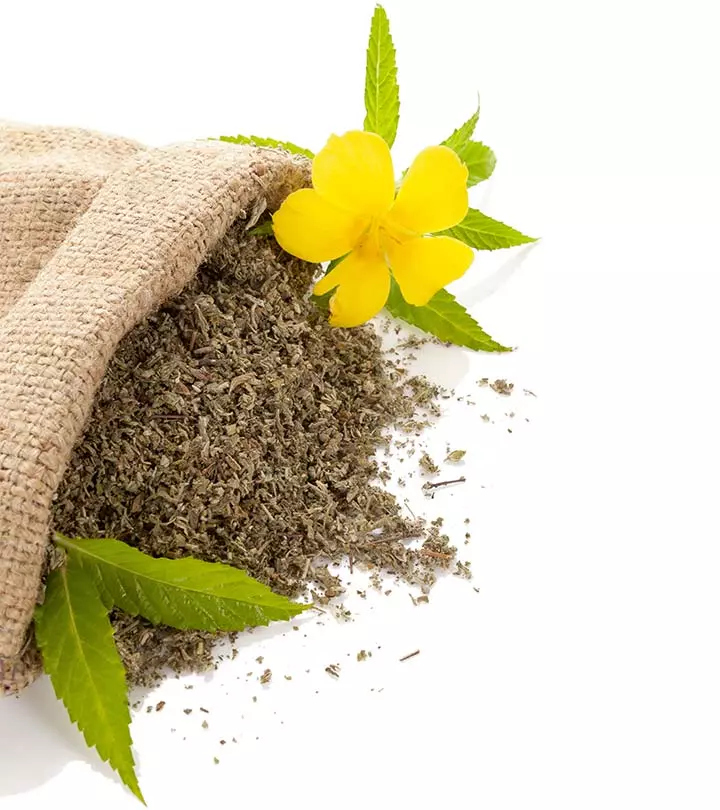
Image: shutterstock
Damiana leaf is a herb known for its aphrodisiac properties. This herbal remedy has been used in folk medicine and is native to Central America. The health benefits of the damiana leaf can be linked to its active components. It can help boost sexual desire, control anxiety and depression, promote digestion, and reduce diabetes risk.
This article explores the health benefits, dosage, and risks associated with damiana leaf. Keep reading.
 Know Your Ingredient: Damiana Leaf
Know Your Ingredient: Damiana LeafWhat Is It?
It is the leaf of a woody shrub native to America.
What Are Its Benefits?
Damiana leaf can help improve sexual performance, prevent menstrual cramps, reduce depression and anxiety, regulate blood glucose levels, and improve digestion.
Who Can Consume It?
It is safe for adult consumption, but not for pregnant women or women planning to conceive. Adequate research is not available on children’s use.
How Often?
3 to 8 grams/ day in the form of tablets; 1-3 ml of damiana tincture or 1-3 gram leaves brewed as a tea daily.
Caution
Overdosing may lead to diarrhea or trigger menstruation.
In This Article
What Is Damiana? What Is The Importance Of Its Leaves?
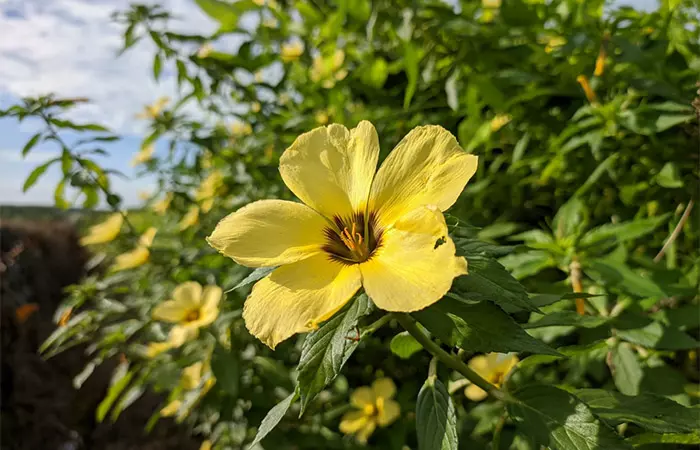
Damiana (Turnera diffusa) is a popular aphrodisiac that is extensively grown in Brazil, Bolivia, Mexico, and the West Indies. The pale green leaves of this perennial shrub are used in folk medicine to brew healing teas.
Damiana leaf tea is said to relieve mild depression, weakness, anxiety, fever, cough, skin disorders, dyspepsiai Recurrent pain, burning sensation, gassiness, or discomfort in the upper abdomen that often occurs after eating or drinking. , digestion, and hangover. Above all, it stimulates metabolism, menstruation, and sexual drive (1), (2).
The leaves are also smoked for a narcotic effect, similar to marijuana.
Damiana leaf has potent antinociceptive (pain-relieving) properties (2). Due to the powerful phytochemicalsi Bioactive plant chemicals found in fruits and veggies that act against bacteria, viruses, and fungi. it contains, this leaf may help to heal a variety of ailments. Take a look.
Key Takeaways
- Damiana (Turnera diffusa), known for its aphrodisiac properties, is largely grown in Brazil, Bolivia, Mexico, and the West Indies.
- Damiana acts as a digestive aid and promotes the secretion of gastric and bile juices.
- Also, it can control anxiety, depression, and nervousness.
What Are The Benefits Of Damiana Leaf?
1. Aphrodisiac: Improves Libido, Sexual Health, And Potency

A few rat studies demonstrated the positive effect of damiana on sexual performance. It was found that an 80 mg/kg dose of damiana extract increased the number of males resuming a second ejaculatory series right after finishing the first one. The interval between the two rounds also reduced (3).
Homeopathy recommends the use of damiana with zinc phosphide, arsenious acid, and cocaine in medicinal dosages to cure erectile dysfunction (4).
Folklore has it that damiana leaf might treat spermatorrhea, premature ejaculation, and several prostate complaints (5).
Also, the damiana leaf may affect fertility issues by boosting sexual desire, stimulating arousal, and increasing sexual drive/pleasure in women (6).
This effect might involve the nitric oxide (NO) pathway. Regulating nitric oxide levels in the body has been shown to improve sex life in rats (7).
Did You Know?
- Damiana acts as an emmenagoguei A substance or agent that stimulates blood flow in the pelvic area and promotes menstrual discharge. . This herbal extract can stimulate menstruation.
- It can relieve headaches, cramps, and other stresses caused due to menstruation and menopause (5).
- In Mexico, damiana is used to flavor teas, liquors, beverages, and many local foods (5).
2. Anxiolytic: Controls Anxiety, Depression, And Nervousness

Alcoholic and aqueous extracts of damiana, also known as tinctures, have potent anti-anxiety properties. These formulations relieve depression and nervousness and improve blood circulation in men and women. It may aid relaxation and improve your energy and mood.
It may also give a transient ‘high’ and hallucinations similar to marijuana while acting as a stimulant (5).
Phytochemicalsi Bioactive plant chemicals found in fruits and veggies that act against bacteria, viruses, and fungi. including flavonoidsi A group of natural substances found in almost all fruits and veggies with anti-inflammatory and disease-fighting properties. , alkaloids, and steroids are behind this property (8). Apigenin, one such flavonoid in the leaves of this plant, has a notable anxiolytic effect (9).
All thanks to its biochemical composition, damiana leaf (predominantly, Turnera aphrodisiaca) can help address CNS disorders – in traditional medicine and as per The British Herbal Pharmacopoeia (8).
3. Digestive And Anti-diabetic: Aids Digestion And Glycemic Control

Damiana plant is an excellent digestive aid. It has been used in digestive and weight loss formulations in folk and new-age medicine. These herbs trigger the secretion of gastric and bile juices (5), (10).
The extract also has mild laxative effects. Damiana, in small doses, can stimulate the bowel movement and prevent spasms due to constipation (5).
A capsule with yerba mate, guarana, and damiana leaves caused a delay in gastric emptying and increased the time to feel gastric fullness. A 45-day course of this capsule brought about weight loss in overweight patients (11).
Richard, a blogger, shares his experience of using damiana in one of his blog posts: “With respect to its traditional reputation, I personally feel that damiana is an invigorating and uplifting herb that I think is better described as a tonic than an aphrodisiac. In fact, I often use it as a small part of a formula for people who are run-down and low in energy (i).”
 Did You Know?
Did You Know?What makes these wild leaves exceptionally beneficial for your sexual and digestive health?
Check out the next section to find out.
What Are The Active Components Of Damiana Leaf?
Both the species of damiana have an abundance of flavonoidsi A group of natural substances found in almost all fruits and veggies with anti-inflammatory and disease-fighting properties. , hydrocarbons, alkaloids, oils, terpenes, etc.
Tetraphyllin B, gonzalitosin I, caffeine, arbutin, damianin, tricosan-2-one, and hexacosanol are identified in the plant (12).
The leaf contains up to 1% volatile oil rich in cineole, cymene, 𝛼- and ß-pinene, thymol, 𝛼-copaene, and calamene (12).
Wondering how to and how much you should take? Keep reading!
How (Much) Do You Take Damiana Leaf?
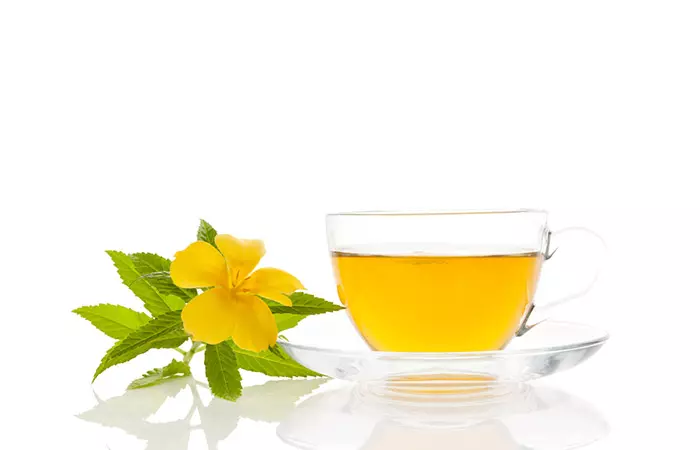
Generally, damiana leaves are brewed to make slightly bitter and mild tea or infusion. And how do you make it? In three simple steps! Here you go!
Step 1: Boil 1 cup (250 ml) water.
Step 2: Add ½ cup (1 g) of dried damiana leaves.
Step 3: Let it steep for 15 minutes. That’s it!
It is recommended to consume this infusion 2 to 3 times a day for best results. Notice how your body reacts and change the frequency as needed. In this way, you may customize the intake to your needs and experience the benefits of damiana leaf.
Alternatively, you can try taking 1-3 ml of damiana tincture, two to three times a day.
If you wish to try the capsules or tablets, 3-8 g, twice a day, is a safe dosage.
You don’t have to worry about side effects (if used within the dosages provided) because there are none documented till date. This is also why the US FDA has approved the usage of damiana in foods (5).
However, we recommend you to keep the following points in mind before trying damiana.
 Did You Know?
Did You Know?Are There Any Precautions Or Risks Associated With Damiana Leaf?
Scientific literature and research claim that damiana and its leaves are one of the safest supplements for enhancing sexual performance (5).
There are almost no or minimal side effects reported against damiana. There are also no proven drug interactions with this herb (5).
In case of an overdose, you might pass loose stools because of the herb’s laxative effect (5).
Caution!
If you are pregnant or planning on conception, stay away from damiana because it is a potent emmenagoguei A substance or agent that stimulates blood flow in the pelvic area and promotes menstrual discharge. . Damiana can induce menstruation in women.
It might result in abortion or a stillborn if you did not refrain from the supplementation. Please consult your doctor about taking this herbal medicine in any case.
Infographic: All About Damiana Leaf
Damiana leaf extracts are often featured in alcoholic drinks. Folk medicine considers them as aphrodisiacs and offers anecdotal evidence for their use.
Learn from the infographic below more about the damiana leaf, how you can grow the shrub at home, and how you can use it to make the most of its benefits.
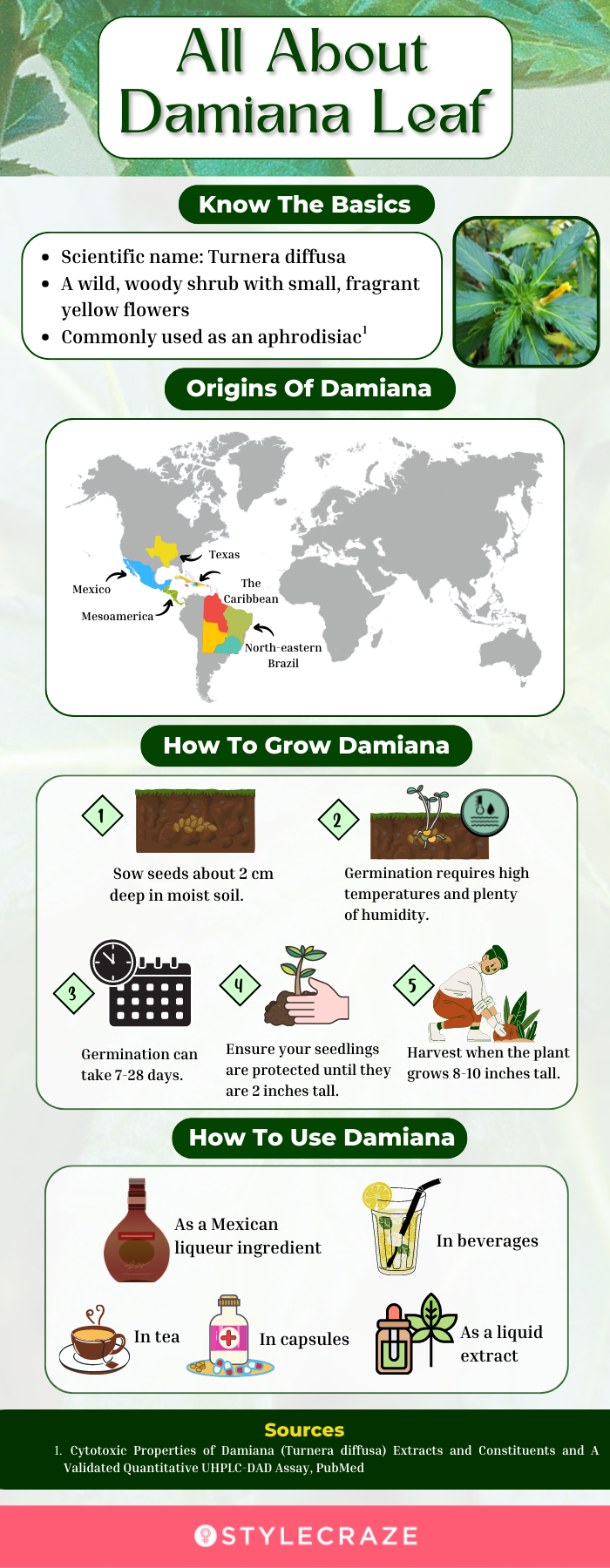
Illustration: StyleCraze Design Team
Damiana leaf is an herbal remedy that has been used in folk medicine for its aphrodisiac properties. The benefits of the damiana leaf can be attributed to its active components. The leaf may help improve libido, sexual health, and potency, control anxiety, depression, and nervousness, and aid in digestion. In addition, it helps treat fever, cough, hangover, and skin disorders. It is available as a tincture, capsules or tablets, and in dried forms. You can prepare damiana tea with its dried leaves. However, excess intake may cause loose stools and induce menstruation. Hence, use it in moderation, and consult your doctor in case of emergencies.
Frequently Asked Questions
Can you take ashwagandha and damiana together?
Yes, ashwagandha can be taken with damiana. The two work as aphrodisiacs and improve libido.
Are damiana and rosemary the same?
No, damiana and rosemary are not the same. While rosemary is a fragrant herb, damiana is a medicinal shrub.
Does Damiana affect kidneys?
Yes, animal studies suggest that damiana leaves have antioxidant properties that may reduce oxidative stress in the kidneys in diabetic rats (13). However, further studies are needed to support this claim.
Does Damiana affect testosterone?
Yes, studies suggest that damiana leaves may inhibit aromatase (enzyme) activity, which in turn, may increase testosterone levels in the blood (14). However, further studies are needed to support this claim.
Illustration: Damiana Leaf Benefits How Much To Consume And Risks

Image: Stable Diffusion/StyleCraze Design Team
Discover the amazing health benefits of the damiana, an aphrodisiac plant! Watch this video to learn how it can improve your health and well-being.
Personal Experience: Source
StyleCraze's articles are interwoven with authentic personal narratives that provide depth and resonance to our content. Below are the sources of the personal accounts referenced in this article.
i. DAMIANAhttps://www.rjwhelan.co.nz/herbs%20A-Z/damiana.html
References
Articles on StyleCraze are backed by verified information from peer-reviewed and academic research papers, reputed organizations, research institutions, and medical associations to ensure accuracy and relevance. Read our editorial policy to learn more.
- “Evaluation of aphrodisiac activity of Turnera aphrodisiaca.” International Journal of Pharmacognosy and Phytochemical Research.
- “Damiana” Herbal Safety, Austin Cooperative Pharmacy Program & Paso del Norte Health Foundation.
- “Exploring scientifically proven herbal aphrodisiacs” Pharmacognosy Review, US National Library of Medicine.
- “Two Millennia of Impotence Cures” Impotence: A Cultural History, University of Chicago Press.
- “Anti-aromatase activity of the constituents from damiana (Turnera diffusa).” Journal of Ethnopharmacology.
- “Herbs For Women’s Health And Well-being” Blog, News & Events, Pacific College of Oriental Medicine.
- “Pro-sexual effects of Turnera diffusa Wild (Turneraceae)…” Journal of Ethnopharmacology, US National Library of Medicine.
- “Anti-anxiety Activity Studies on Homoeopathic Formulations…” Evidence-based Complementary and Alternative Medicine, US National Library of Medicine.
- “Estimation of Apigenin, an Anxiolytic Constituent…” Indian Journal of Pharmaceutical Sciences, US National Library of Medicine.
- “Using Herbal Remedies to Maintain Optimal Weight” Author manuscript, HHS Public Access, US National Library of Medicine.
- “Hypoglycemic herbs and their action mechanisms” Chinese Medicine, US National Library of Medicine.
- “Pharmacological evaluation of Bioactive Principle of…” Indian Journal of Pharmaceutical Sciences, US National Library of Medicine.
- “Antioxidant effects of damiana..” Natural Product Research, Taylor Francis Online.
- “Anti-Aromatase Activity of the Constituents..” Journal of Ethnopharmacology, Agricultural Research Service
Read full bio of Julie Freeman
Read full bio of Swathi Handoo
Read full bio of Ravi Teja Tadimalla
Read full bio of Aparna Mallampalli






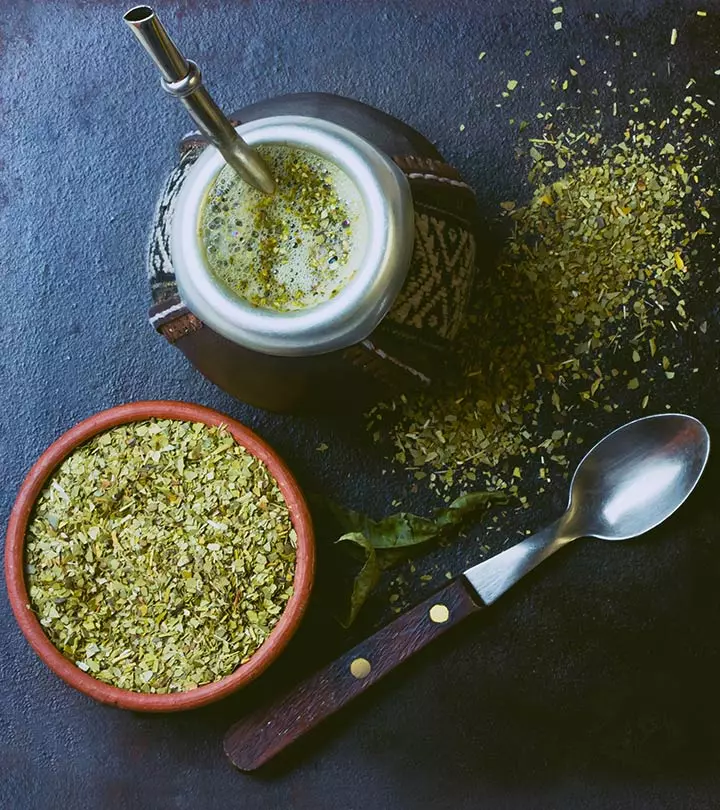
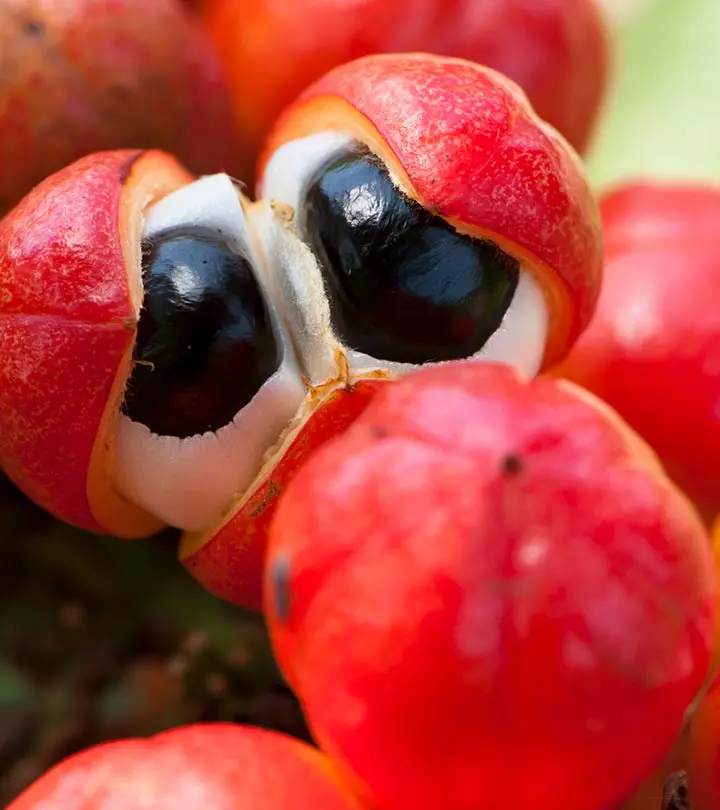
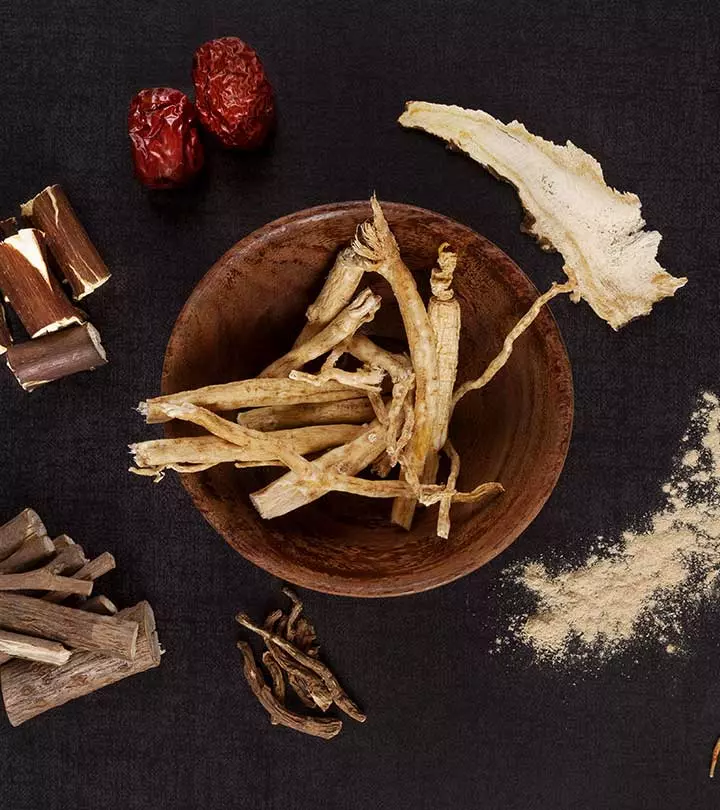
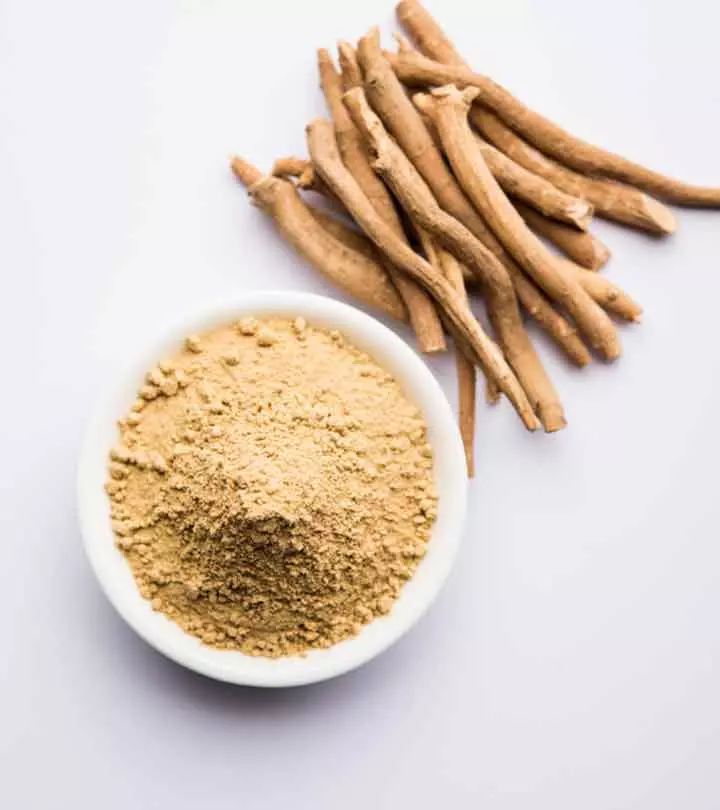

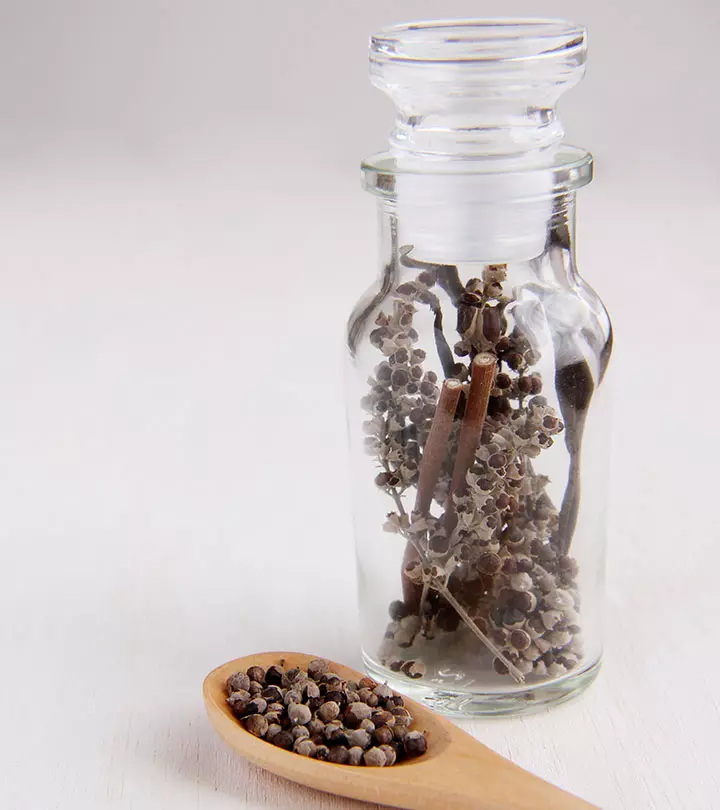
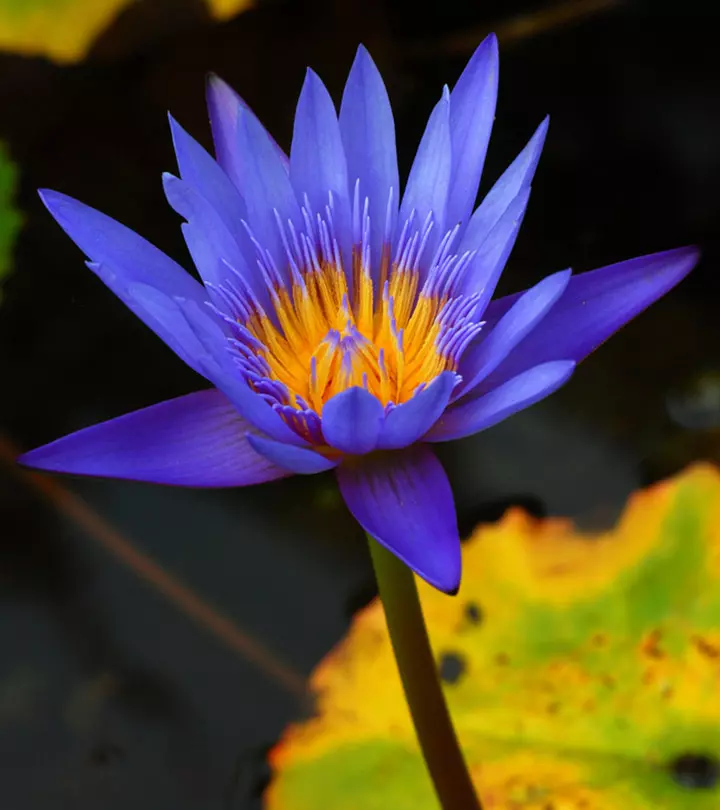
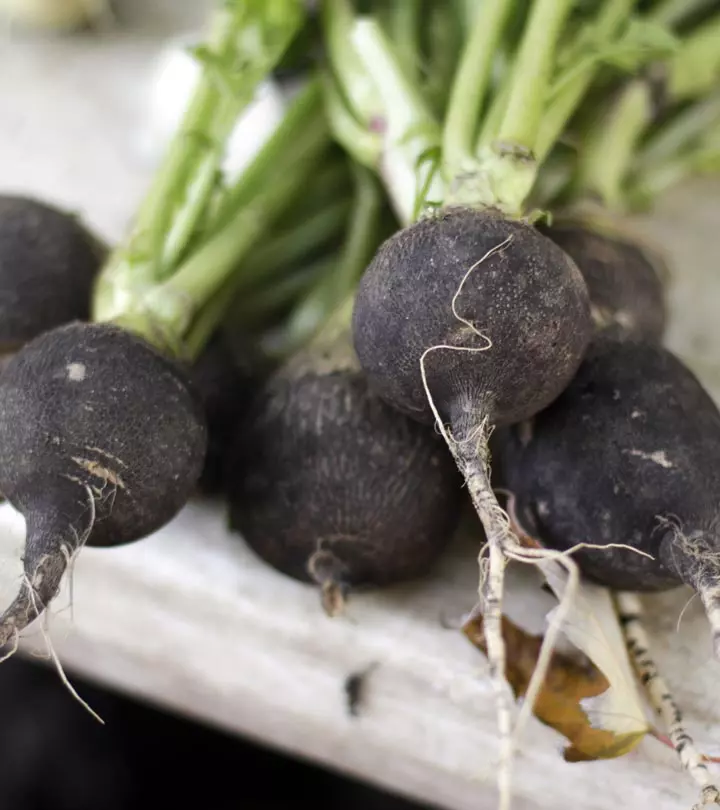
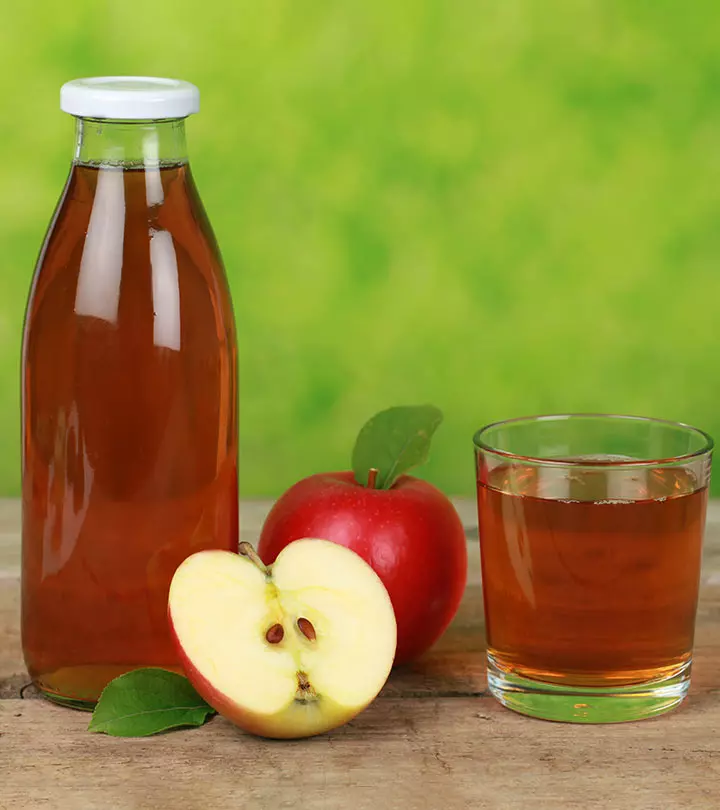
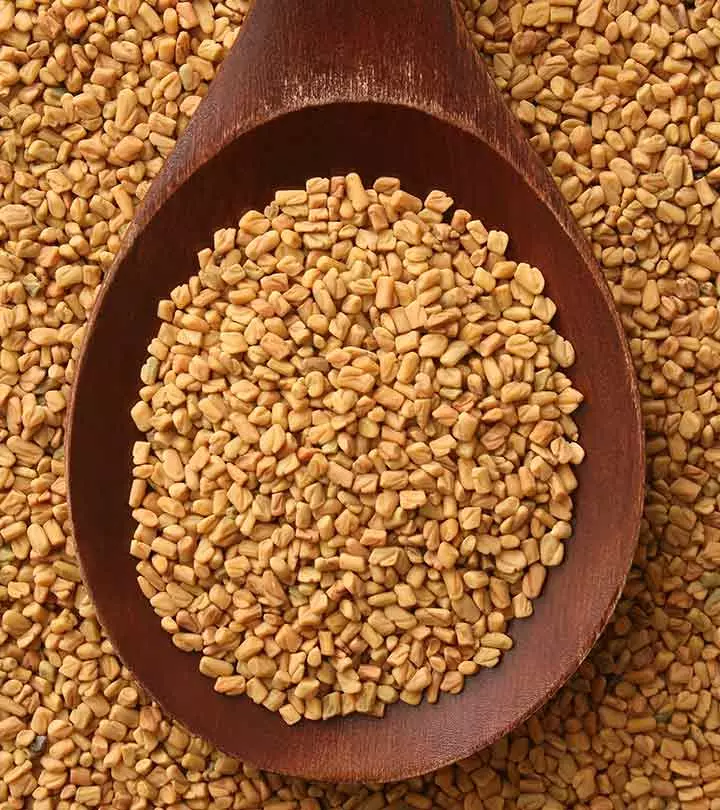
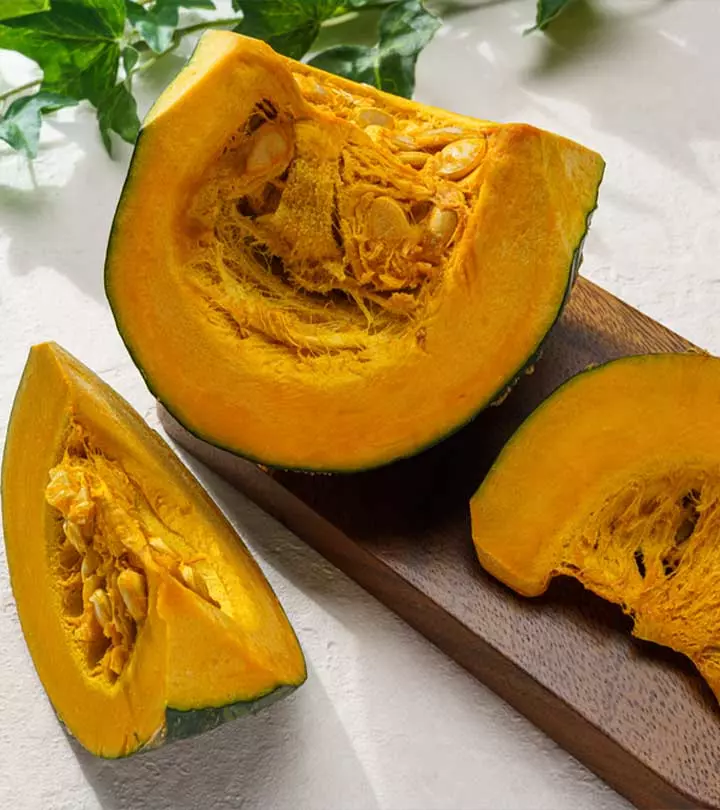
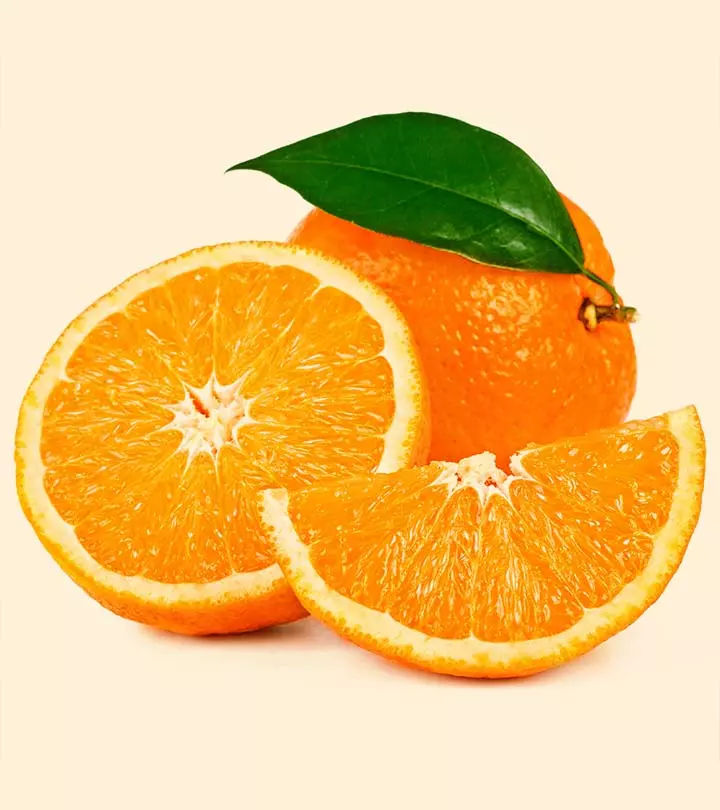
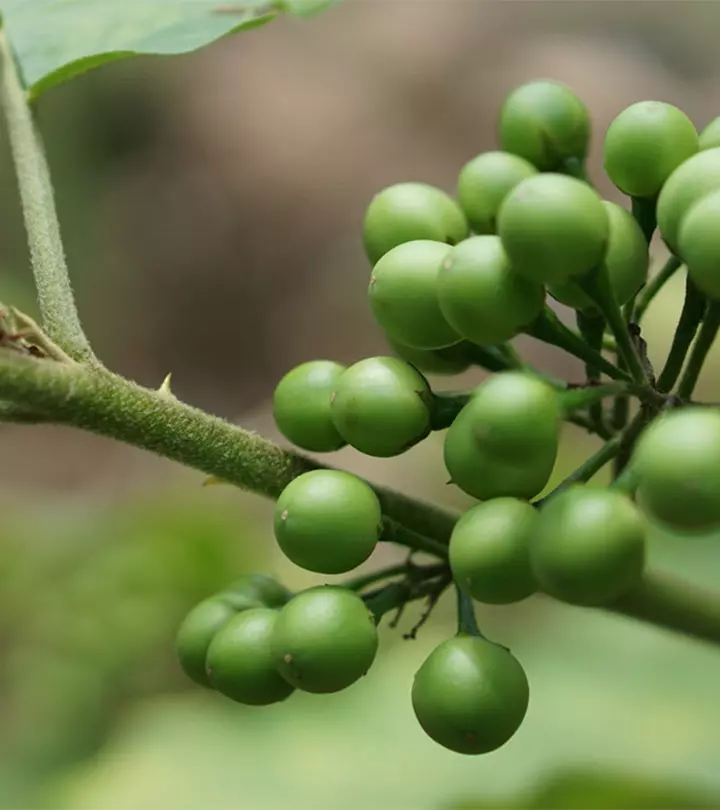
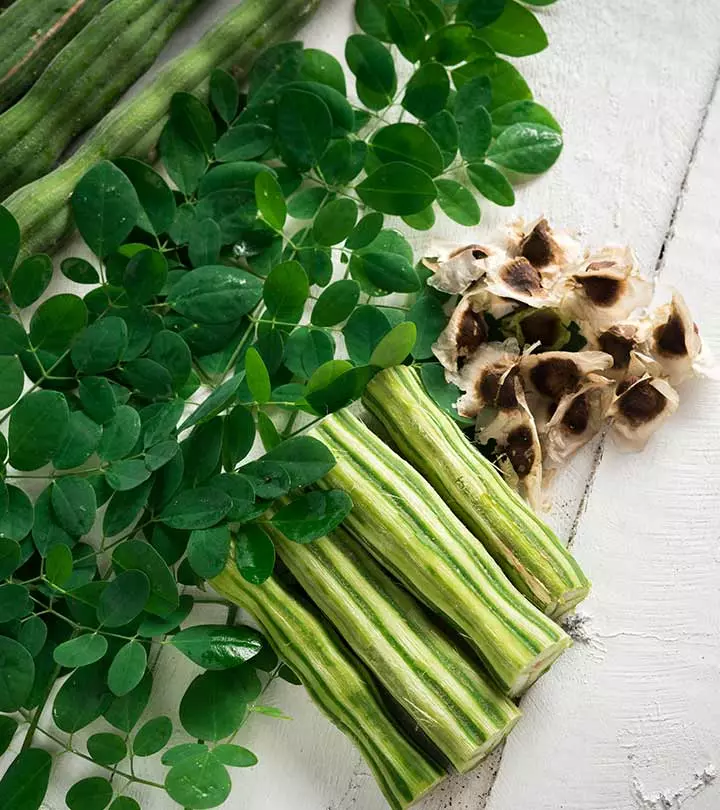
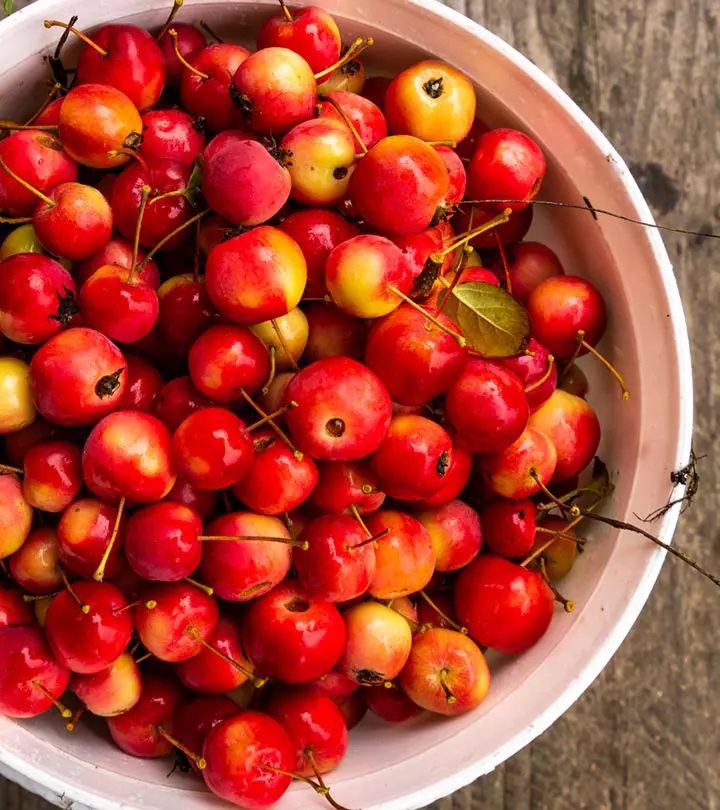
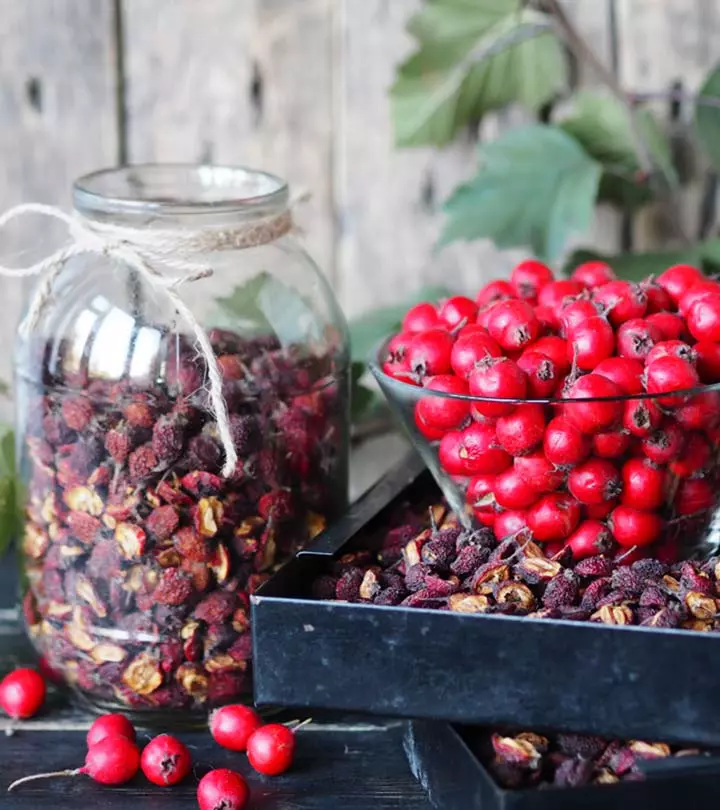
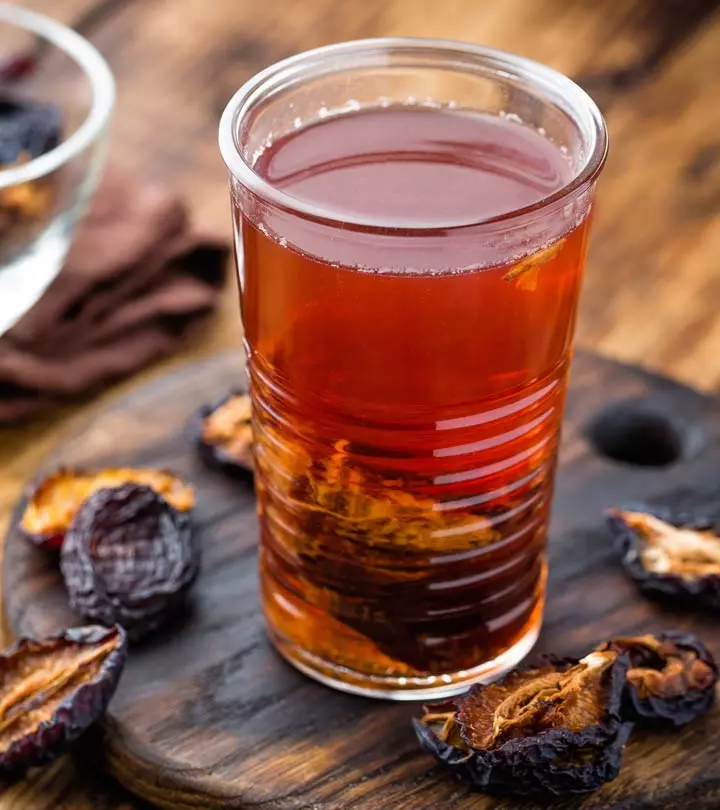
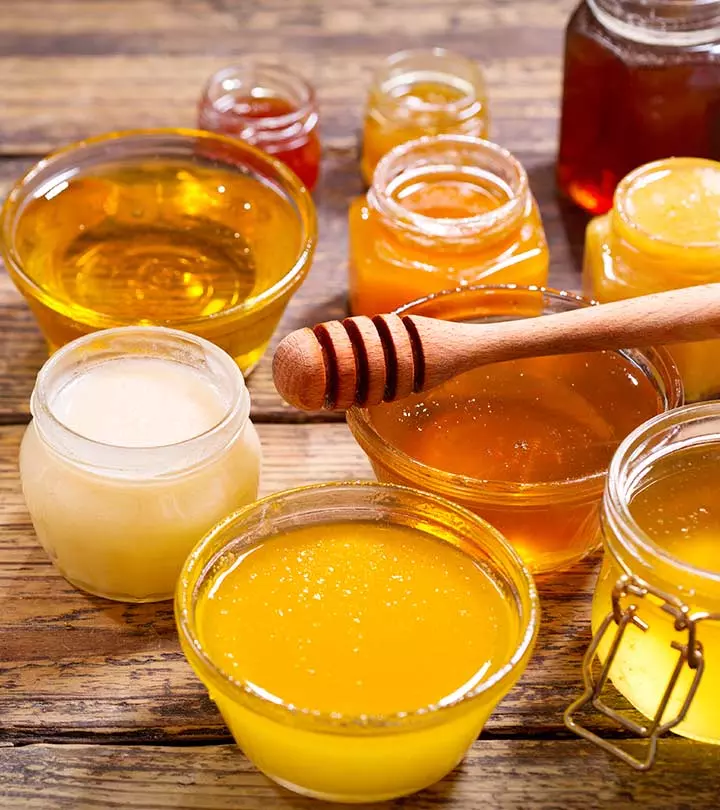

Community Experiences
Join the conversation and become a part of our empowering community! Share your stories, experiences, and insights to connect with other beauty, lifestyle, and health enthusiasts.